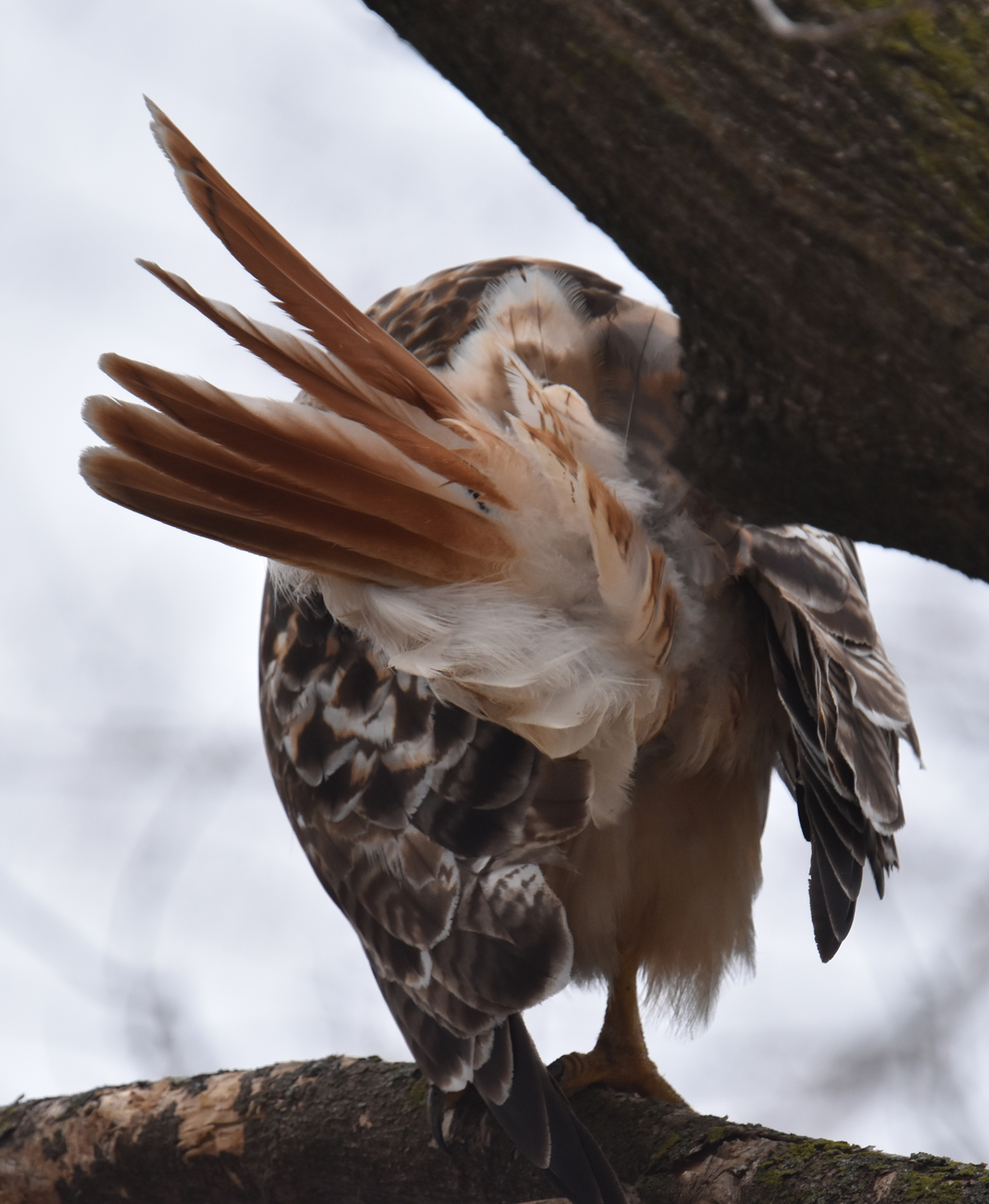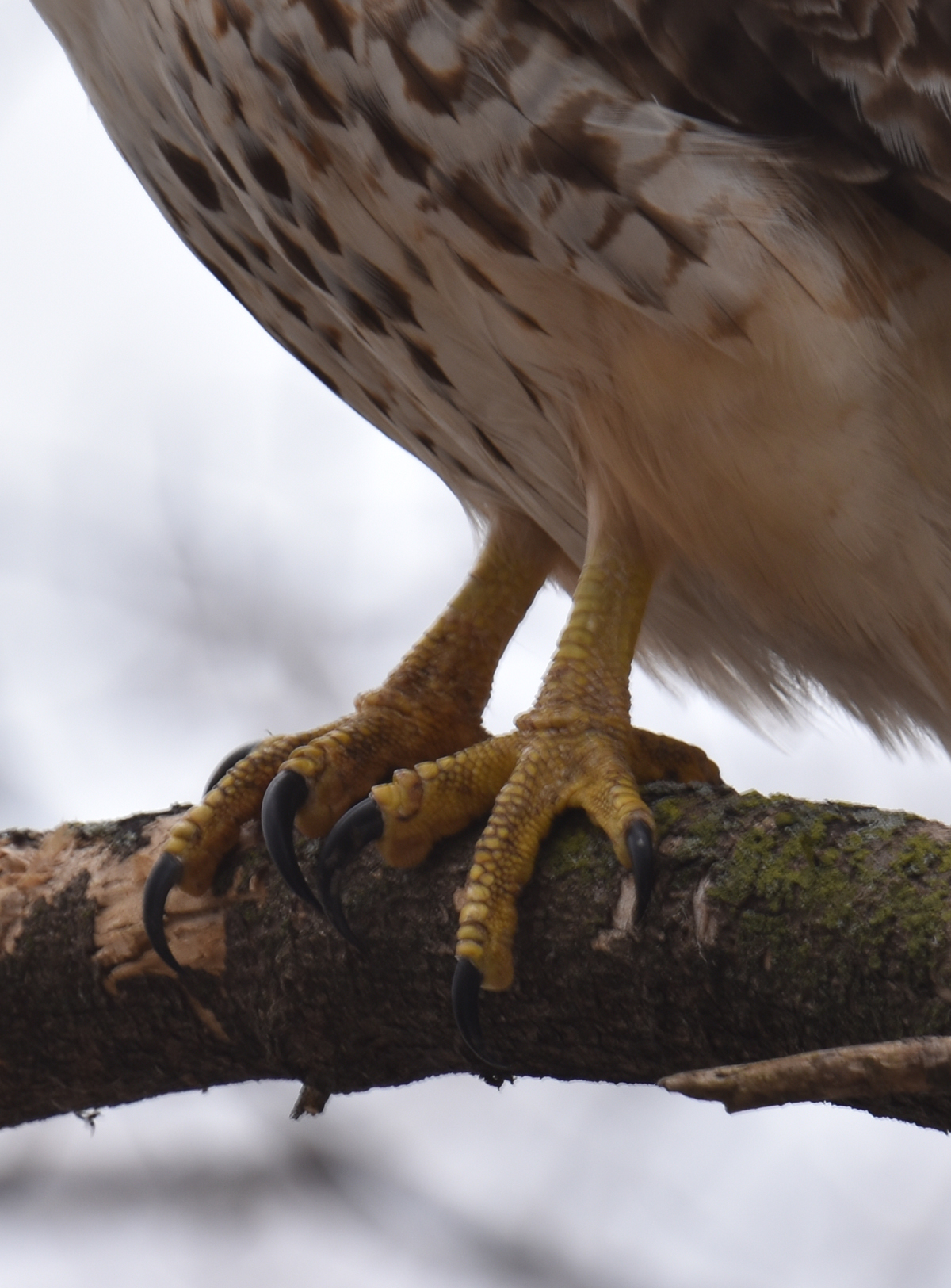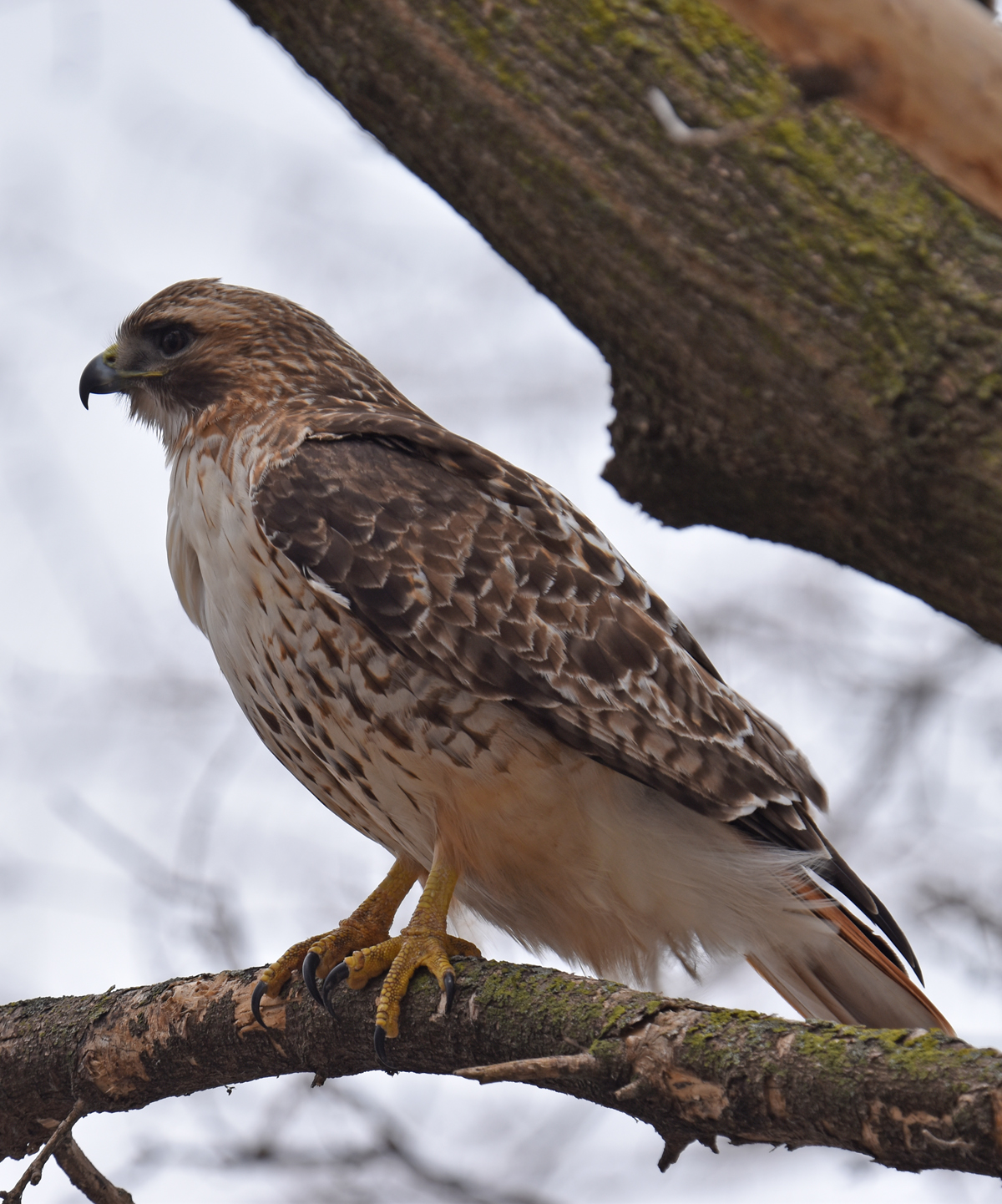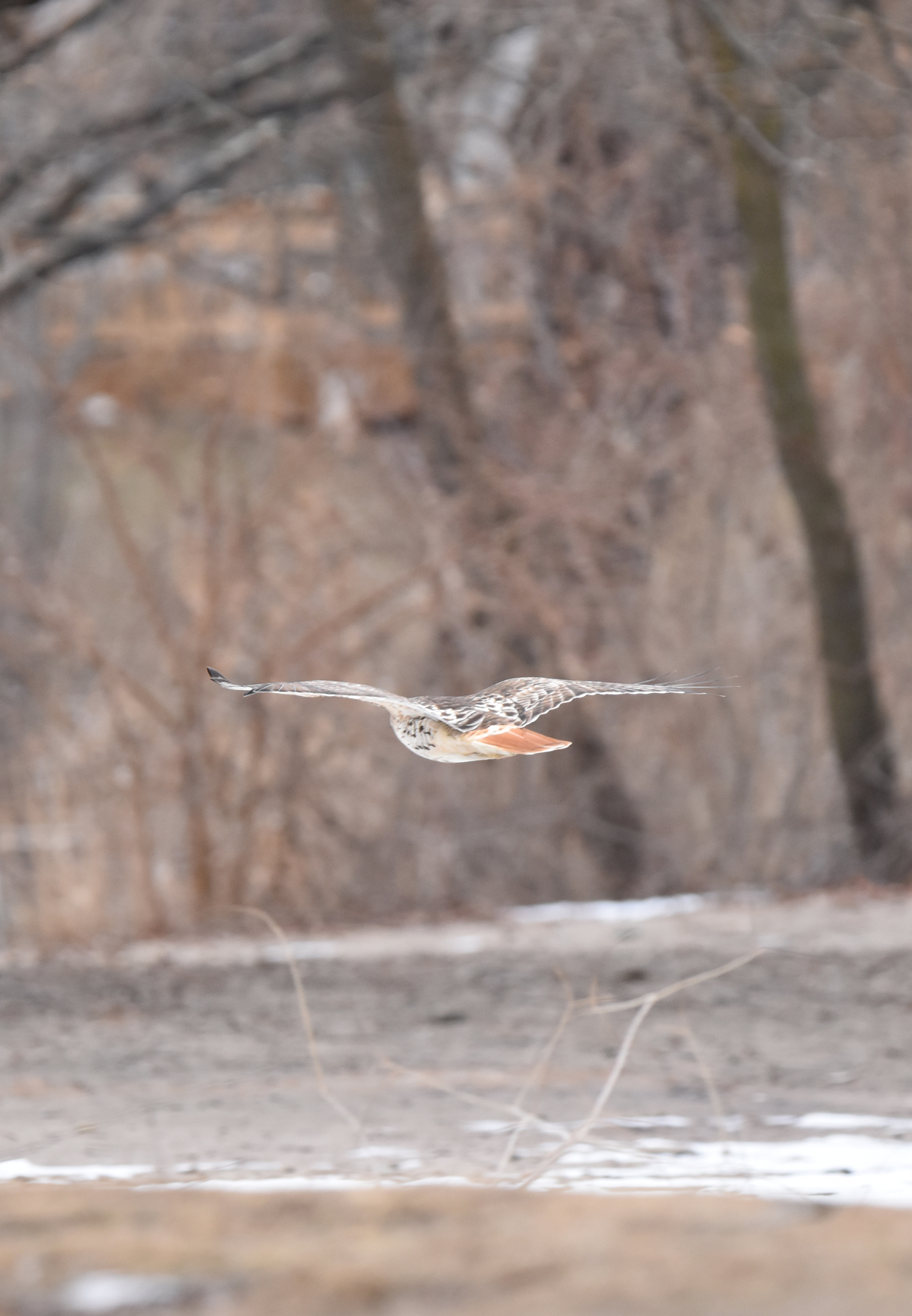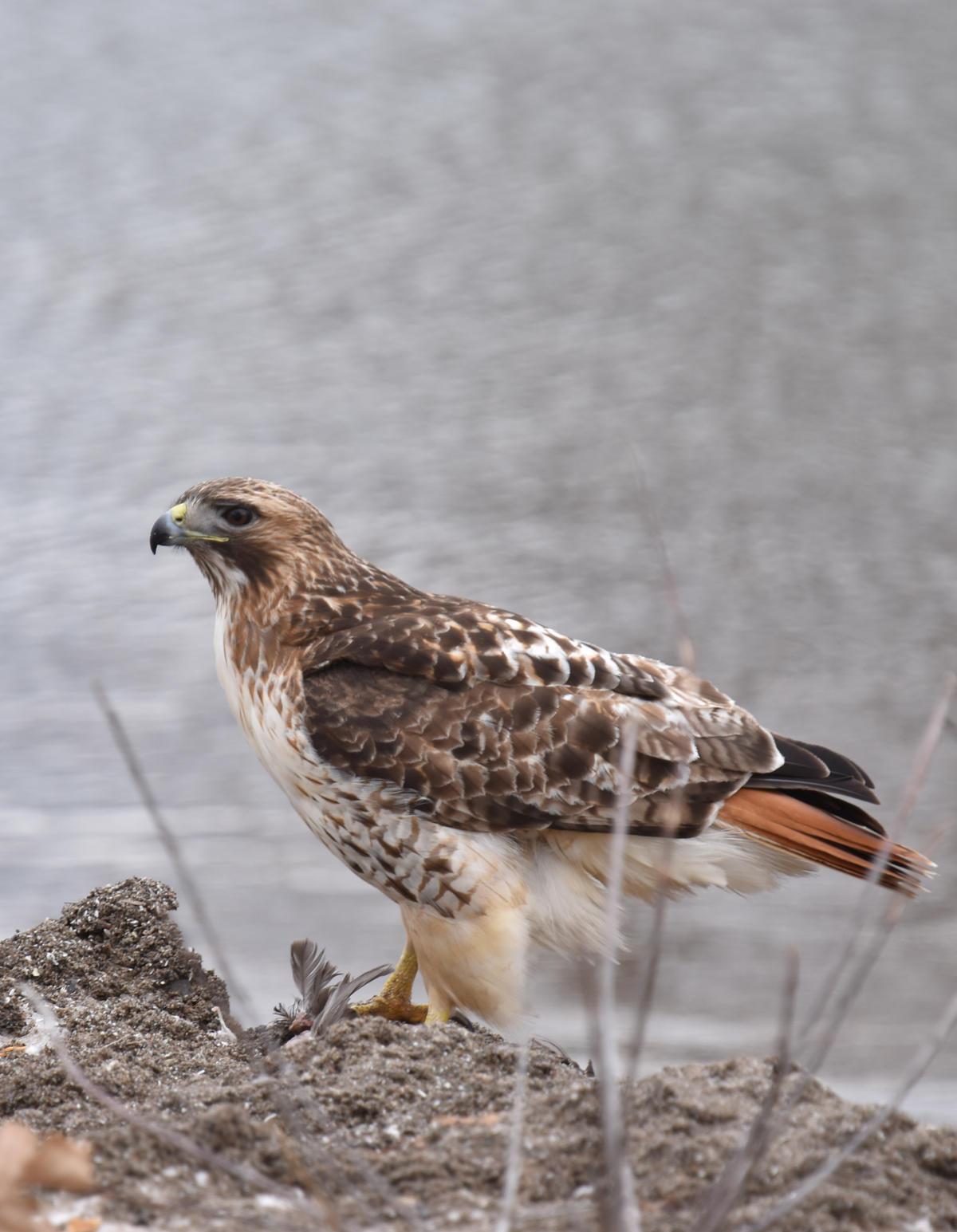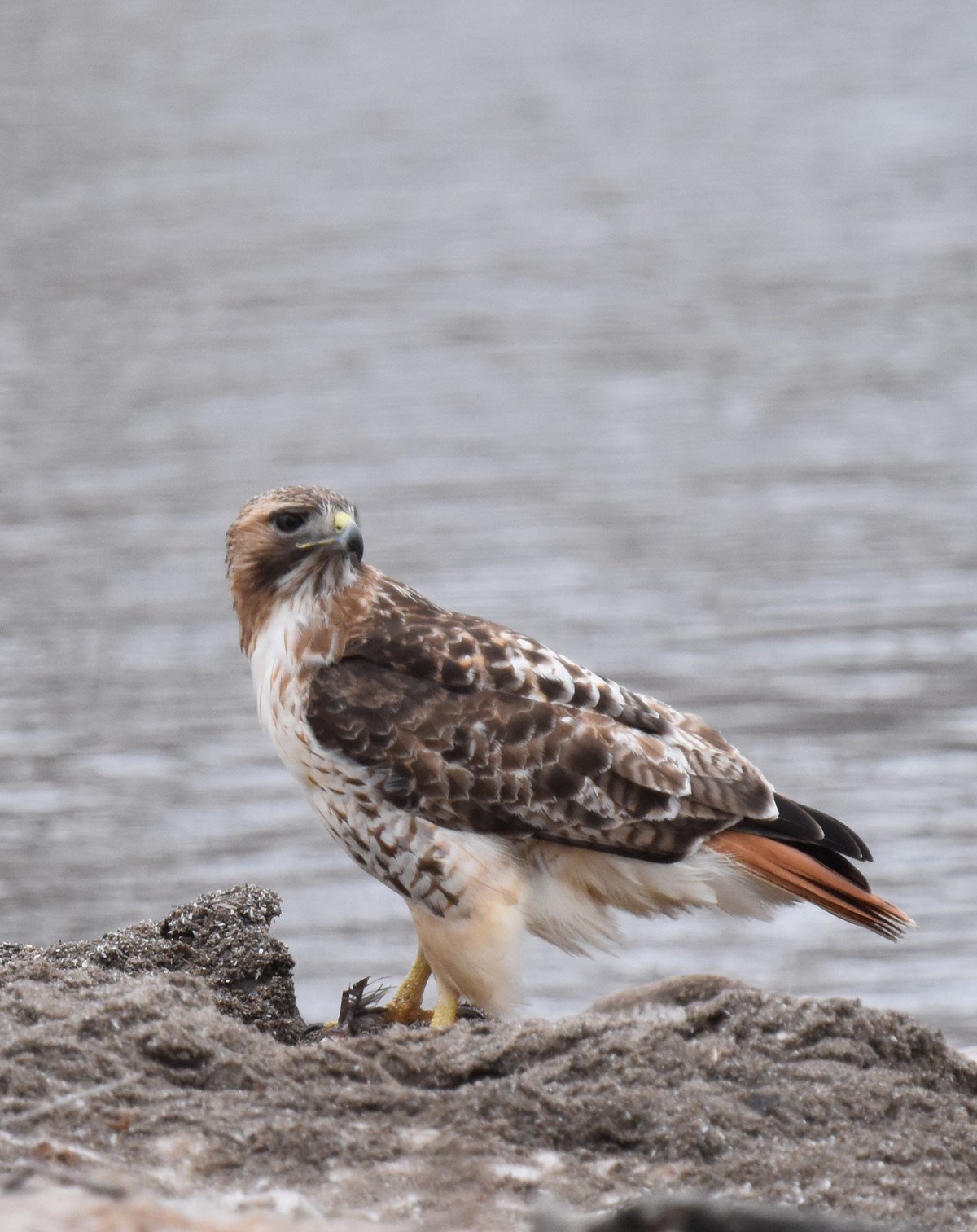I’ve noticed that if I’m patient and keep walking or exploring usually something wonderful happens just as I’m about to get miffed and give up. One cold, damp, windy, muddy February day, I stopped at the beach on the Hamilton-side of the inlet at Bronte Marina. I admired the Bufflehead, Scaup and Goldeneye bravely diving into the frigid water. I noticed the Herring and Ring-billed Gulls, the Mallards, Black Ducks and Gadwall. Still, I wondered why everyone else got to see Snow Geese and a Ross Goose but I only get an endless stream of Canadas. And I tried to decide whether to clamber over the chains blocking the steel staircase from use even though it was whistle-clean and bone dry. As I stood their in umphish thought, a Red-tailed Hawk swooped by me, nearly ruffling my hair and landed in a tree along the shore.
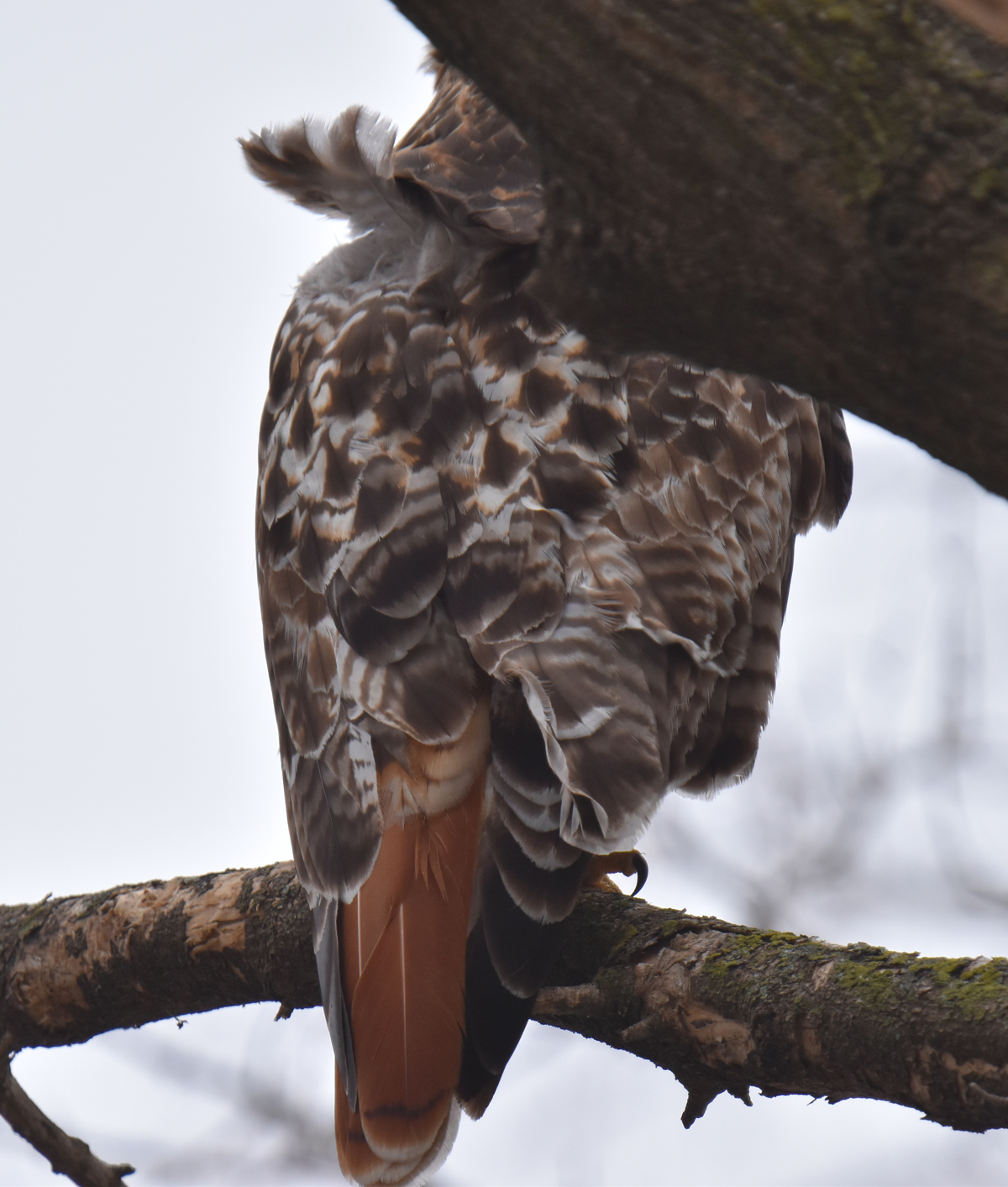 With utter indifference, the bird landed and presented me with this stellar view: at least it was immediately clear what type of hawk it was!
With utter indifference, the bird landed and presented me with this stellar view: at least it was immediately clear what type of hawk it was!
The Incessant Need for Good Grooming
The hawk’s priority at that moment was to preen. Immediately after landing it set to work, running its beak through its wings and tail. Given the cold, wet weather, I’m sure it was essential to keep its feathers ready to withstand the wind and water.
I quietly edged over taking lots of photos most of which are a jumble of fluffed feathers from various angles.
Eventually, it checked what was making the clicking noises but the bird remained uninterested in me. Perhaps it only wondered if there was a dog too?
I could clearly see it had nothing in its grasp. Well, except wood.
It posed briefly, then hunched up and launched itself.
Do Red-tailed Hawks Scavenge?
It flew a dozen metres (yards) down to the beach, landed on another tree, then after resting there for a couple of minutes, drifted down onto the bleached, barren sand.
It then hopped over to a row of beach wrack and started to pick at something to eat.
I was moving gradually closer, intrigued by a flock of Mallards. The ducks had started swimming towards land from a rocky shoal, approaching the hawk as soon as it arrived on the beach. These were the same birds that had paddled away when I was near earlier, so they weren’t coming to see if I was offering a handout. In that case, they would also have come towards me instead of away from me towards the hawk. I never did figure out what they wanted, as they stayed about 5 metres back neither landing nor retreating.
Meanwhile, it was clear from the feathers that the Red-tailed had found a bird.
I don’t think it had just caught it, though. There was no sign of a bird on the beach when the Red-tailed flew. Scanning back through my photos, I can’t see any birds perched on the sand. I think the Red-tailed may have been scavenging or re-visiting an earlier kill.
It left me wondering whether Red-tailed do scavenge. Bald Eagles certainly do. And Vultures. But usually when I see a Red-tailed Hawk it is catching its own snack.
According to the Hawk Mountain website, among others, yes, Red-tailed Hawks will scavenge and eat carrion. So it’s quite possible that the hawk did not catch the bird at its feet.
Regardless of how it found a meal, I wanted the hawk to be able to eat in peace, so I turned and walked briskly away from me observation post behind a large willow tree. This Red-tail may be a year-round resident bird, in which case it will be thinking of nesting soon, or it may be a migrating Red-tail heading gradually back north. Either way, it needs to eat especially in this wet, clammy weather.
I was glad I hadn’t given up too soon, though, or I would have missed an intriguing encounter.
Related Reading
Join In
Are the Red-tailed Hawks nesting in your neck of the woods? Please share your sightings with a comment.

